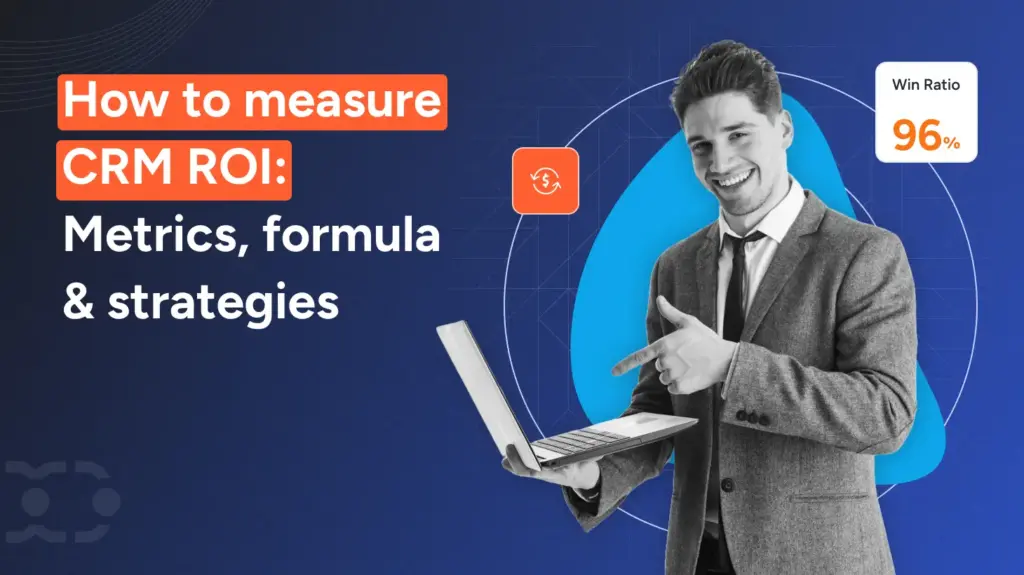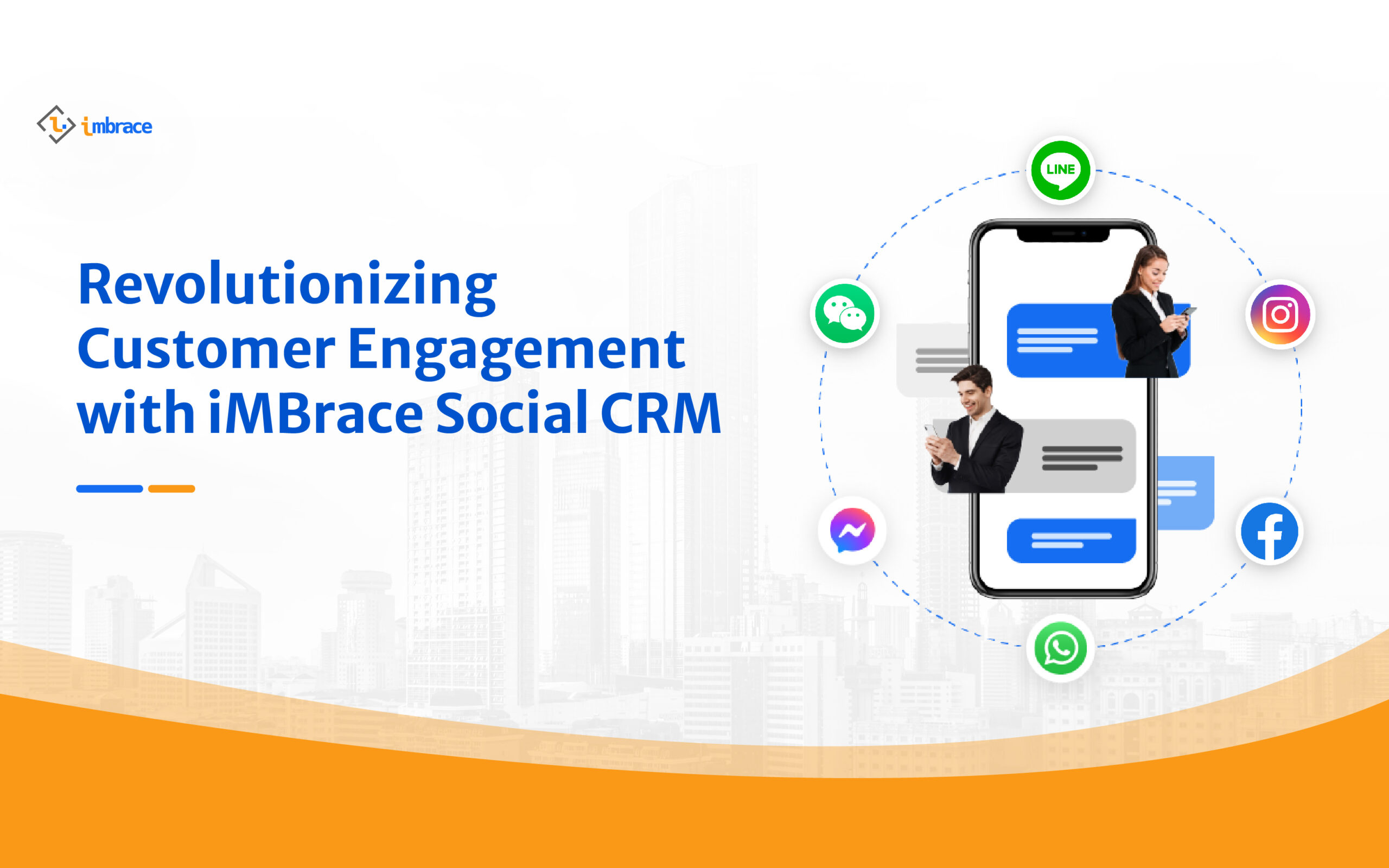
In today’s hyper-competitive business landscape, simply having a product or service isn’t enough. You need a strategic edge, a way to understand your customers better than your competitors, and a system that allows you to nurture relationships and drive conversions. That’s where Customer Relationship Management (CRM) marketing comes into play. But it’s not just about implementing a CRM; it’s about strategically leveraging it to achieve a positive Return on Investment (ROI). This comprehensive guide will delve deep into the world of CRM marketing ROI, equipping you with the knowledge and tools to transform your CRM investment into a powerful engine for growth.
What is CRM Marketing and Why Does it Matter?
Before we dive into the ROI aspect, let’s clarify what CRM marketing actually entails. At its core, CRM marketing is a strategic approach that uses CRM software and associated data to understand, engage, and retain customers. It’s about building lasting relationships by tailoring your marketing efforts to individual customer needs and preferences.
Think of it as the difference between shouting into a crowded room and having a personalized conversation with each person. CRM marketing enables the latter. It allows you to:
- Centralize Customer Data: Consolidate all customer interactions, purchase history, preferences, and demographics in one easily accessible location.
- Segment Your Audience: Divide your customer base into distinct groups based on shared characteristics, allowing for targeted messaging.
- Personalize Marketing Campaigns: Craft highly relevant and engaging content that resonates with individual customer segments.
- Automate Marketing Processes: Streamline repetitive tasks like email marketing, lead nurturing, and follow-up communications.
- Improve Customer Service: Provide faster, more efficient, and more personalized support.
The benefits of CRM marketing are numerous. It leads to increased customer satisfaction, higher conversion rates, improved customer retention, and ultimately, a stronger bottom line. But the crucial question is: how do you ensure that your CRM investment pays off? That’s where understanding and optimizing your CRM marketing ROI becomes critical.
Understanding CRM Marketing ROI: The Foundation of Success
Return on Investment (ROI) is a fundamental metric in business, and CRM marketing is no exception. It measures the profitability of your CRM marketing efforts, essentially telling you how much you’re earning for every dollar you invest. A positive ROI indicates that your CRM marketing initiatives are generating more revenue than they cost, while a negative ROI suggests that adjustments are needed.
Calculating CRM marketing ROI involves a few key steps:
- Determine Your Investment: This includes the cost of your CRM software (licensing fees, implementation costs), any additional software integrations, the salaries of your CRM team, and any other associated expenses like training or consulting.
- Track Your Revenue: Identify the revenue generated directly from your CRM marketing activities. This could include revenue from sales generated through CRM-driven email campaigns, leads nurtured through the CRM, or improved customer retention leading to repeat purchases.
- Calculate the ROI: Use the following formula:
ROI = ((Revenue Generated – Total Investment) / Total Investment) * 100
For example, if you invest $10,000 in CRM marketing and generate $30,000 in revenue, your ROI would be: (($30,000 – $10,000) / $10,000) * 100 = 200%. This means you’re earning $2 for every dollar you invest.
However, it’s essential to go beyond the basic ROI calculation. You need to delve deeper and understand the specific factors that influence your CRM marketing ROI. This includes analyzing the effectiveness of your campaigns, identifying areas for improvement, and continuously optimizing your strategy.
Key Metrics to Track for CRM Marketing ROI
To accurately assess your CRM marketing ROI, you need to track a range of key metrics. These metrics provide valuable insights into the performance of your campaigns and help you identify areas for optimization. Here are some of the most important metrics to monitor:
- Customer Acquisition Cost (CAC): The cost of acquiring a new customer. This helps you understand the efficiency of your marketing efforts.
- Customer Lifetime Value (CLTV): The predicted revenue a customer will generate throughout their relationship with your business. This metric is crucial for understanding the long-term value of your CRM efforts.
- Conversion Rate: The percentage of leads that convert into customers. This indicates the effectiveness of your sales and marketing processes.
- Customer Retention Rate: The percentage of customers you retain over a specific period. This reflects the success of your customer relationship efforts.
- Churn Rate: The percentage of customers who stop doing business with you. This highlights areas where you need to improve customer satisfaction.
- Email Open Rate: The percentage of emails that are opened by recipients. This indicates the effectiveness of your email subject lines and content.
- Click-Through Rate (CTR): The percentage of email recipients who click on a link in your email. This measures the engagement level of your audience.
- Cost Per Lead (CPL): The cost of acquiring a qualified lead. This helps you assess the efficiency of your lead generation efforts.
- Return on Ad Spend (ROAS): The revenue generated for every dollar spent on advertising. This is particularly important if you’re using paid advertising within your CRM marketing strategy.
- Website Traffic and Engagement: Track website visits, time on page, and bounce rate to understand how your CRM marketing efforts drive traffic and engage your audience.
By regularly monitoring these metrics, you can gain a comprehensive understanding of your CRM marketing performance and identify areas where you can improve your ROI.
Strategies to Maximize CRM Marketing ROI
Simply implementing a CRM and tracking metrics isn’t enough. You need a strategic approach to maximize your CRM marketing ROI. Here are some proven strategies to help you achieve optimal results:
1. Define Clear Goals and Objectives
Before you even begin implementing your CRM, you need to define clear, measurable, achievable, relevant, and time-bound (SMART) goals. What do you want to achieve with your CRM marketing efforts? Are you aiming to increase sales, improve customer retention, or generate more leads? Having specific goals will help you focus your efforts and track your progress effectively.
2. Segment Your Audience Effectively
One of the most powerful aspects of CRM marketing is the ability to segment your audience. Don’t treat all your customers the same. Divide them into distinct groups based on demographics, purchase history, behavior, and preferences. This allows you to tailor your messaging and offers to resonate with each segment, leading to higher conversion rates and improved customer satisfaction.
3. Personalize Your Marketing Campaigns
Personalization is key to engaging your audience. Use the data in your CRM to personalize your email campaigns, website content, and other marketing materials. Address customers by name, recommend products based on their past purchases, and tailor your messaging to their specific needs and interests. Personalization shows that you understand and value your customers, fostering stronger relationships and driving conversions.
4. Automate Your Marketing Processes
CRM software allows you to automate many repetitive marketing tasks, such as email marketing, lead nurturing, and social media posting. Automation saves time, reduces errors, and allows your team to focus on more strategic initiatives. Implement automated workflows to nurture leads, onboard new customers, and provide personalized follow-up communications.
5. Integrate Your CRM with Other Tools
Integrate your CRM with other essential business tools, such as your email marketing platform, social media channels, and e-commerce platform. This will allow you to centralize your data, streamline your workflows, and gain a holistic view of your customer interactions. Integration also enables you to track the effectiveness of your marketing efforts across different channels.
6. Optimize Your Email Marketing Campaigns
Email marketing is a cornerstone of most CRM marketing strategies. Optimize your email campaigns by focusing on these key areas:
- Subject Lines: Craft compelling subject lines that grab attention and entice recipients to open your emails.
- Content: Create valuable and engaging content that resonates with your target audience.
- Segmentation: Segment your email list to send targeted messages to specific customer groups.
- Personalization: Personalize your emails with the recipient’s name and other relevant information.
- Testing: A/B test different elements of your emails, such as subject lines, content, and calls to action, to see what performs best.
7. Provide Excellent Customer Service
Exceptional customer service is essential for building strong customer relationships and driving repeat business. Use your CRM to track customer interactions, manage support tickets, and provide personalized support. Respond to customer inquiries promptly and efficiently, and go the extra mile to exceed their expectations. Happy customers are more likely to remain loyal and recommend your business to others.
8. Continuously Analyze and Optimize
CRM marketing is an ongoing process. Regularly analyze your data, track your key metrics, and identify areas for improvement. A/B test different campaigns, experiment with new strategies, and make adjustments based on your results. Continuously optimizing your efforts is crucial for maximizing your CRM marketing ROI.
9. Train Your Team
Your CRM is only as good as the people who use it. Invest in training your team on how to effectively use the CRM software and implement your marketing strategies. Ensure they understand the importance of data accuracy, customer segmentation, and personalization. Empower your team to leverage the CRM to its full potential.
10. Choose the Right CRM Software
The choice of CRM software is fundamental to the success of your CRM marketing efforts. Select a CRM that aligns with your business needs, budget, and technical capabilities. Consider factors such as:
- Features: Does the CRM offer the features you need, such as contact management, sales automation, marketing automation, and reporting?
- Ease of Use: Is the CRM user-friendly and easy to navigate?
- Integrations: Does the CRM integrate with your existing tools and systems?
- Scalability: Can the CRM scale to accommodate your future growth?
- Pricing: Is the pricing model affordable and transparent?
Research different CRM solutions, compare their features and pricing, and choose the one that best fits your specific requirements.
Common Challenges and How to Overcome Them
While CRM marketing offers significant benefits, businesses often encounter challenges. Here are some common obstacles and how to overcome them:
- Data Quality Issues: Inaccurate, incomplete, or outdated data can undermine your CRM efforts. Implement data cleansing procedures, regularly update your data, and train your team on the importance of data accuracy.
- Low User Adoption: If your team doesn’t embrace the CRM, your efforts will be ineffective. Provide adequate training, demonstrate the benefits of using the CRM, and make it easy for your team to adopt the system.
- Integration Problems: Integrating your CRM with other tools can be complex. Choose a CRM that offers seamless integrations with your existing systems and seek professional assistance if needed.
- Lack of Strategy: Implementing a CRM without a clear strategy is a recipe for failure. Develop a comprehensive CRM marketing strategy that aligns with your business goals and objectives.
- Measuring the Wrong Metrics: Focusing on the wrong metrics can lead to inaccurate insights. Track the key metrics that are most relevant to your business goals and regularly analyze your data.
Real-World Examples of CRM Marketing ROI Success
Let’s look at some real-world examples of how businesses have achieved significant ROI through effective CRM marketing:
- E-commerce Company: An e-commerce company implemented a CRM to personalize its email marketing campaigns. By segmenting its customer base and sending targeted product recommendations, they increased their email click-through rates by 25% and their conversion rates by 15%, leading to a significant boost in revenue.
- Software-as-a-Service (SaaS) Company: A SaaS company used its CRM to automate its lead nurturing process. They created automated email sequences that provided valuable content to leads based on their interests and behavior. This resulted in a 30% increase in qualified leads and a 20% increase in sales conversions.
- Financial Services Company: A financial services company implemented a CRM to improve its customer service. By tracking customer interactions and providing personalized support, they reduced their customer churn rate by 10% and increased their customer lifetime value.
- Retail Chain: A retail chain used its CRM to analyze customer purchase history and create targeted loyalty programs. By offering personalized discounts and rewards, they increased customer retention and drove repeat purchases, resulting in a significant increase in revenue and customer loyalty.
These examples demonstrate the power of CRM marketing to drive tangible results. By implementing the strategies outlined in this guide, you can replicate these successes and unlock the full potential of your CRM investment.
The Future of CRM Marketing and ROI
The landscape of CRM marketing is constantly evolving. As technology advances, so do the opportunities to enhance your ROI. Here are some emerging trends to watch:
- Artificial Intelligence (AI): AI is being integrated into CRM systems to automate tasks, personalize customer experiences, and predict customer behavior. AI-powered CRM can analyze vast amounts of data to identify patterns and insights that human analysts might miss.
- Machine Learning (ML): ML algorithms can be used to automate marketing processes, optimize campaigns, and personalize customer interactions. For example, ML can be used to predict which customers are most likely to churn and proactively offer them incentives to stay.
- Omnichannel Marketing: Customers interact with businesses across multiple channels, including email, social media, website, and mobile apps. An omnichannel approach ensures a consistent customer experience across all channels, leading to higher engagement and conversion rates.
- Data Privacy and Security: As data privacy regulations become stricter, businesses must prioritize data security and compliance. This includes implementing robust security measures and obtaining customer consent for data collection and use.
- Focus on Customer Experience (CX): The customer experience is becoming increasingly important. Businesses that prioritize CX are more likely to retain customers and drive loyalty. CRM marketing plays a critical role in delivering a positive CX.
By staying informed about these trends, you can ensure that your CRM marketing strategy remains competitive and effective in the future.
Conclusion: Transforming Your CRM Investment into a Revenue Generator
CRM marketing ROI is not just about implementing a CRM; it’s about strategically leveraging it to understand your customers, build relationships, and drive conversions. By following the strategies outlined in this guide, you can transform your CRM investment into a powerful engine for growth.
Remember to:
- Define clear goals and objectives.
- Segment your audience effectively.
- Personalize your marketing campaigns.
- Automate your marketing processes.
- Integrate your CRM with other tools.
- Optimize your email marketing campaigns.
- Provide excellent customer service.
- Continuously analyze and optimize.
- Train your team.
- Choose the right CRM software.
By embracing these principles, you can unlock the full potential of your CRM and achieve a positive and substantial ROI. CRM marketing is not just a trend; it’s a fundamental component of modern business success. So, take action today and start maximizing your CRM marketing ROI to drive explosive business growth!

